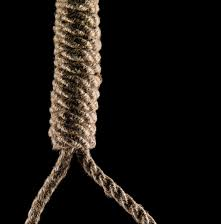By Jordan Darling.
Image courtesy of Creative Commons
In the early hours of May 23, a university employee found a noose hanging on the back of a maintenance truck in a part of campus not open to the general public.
Campus police are still investigating the incident and were unable to share further details at this time.
The incident came less than a week after almost 4,000 Toros celebrated graduation.
CSUDH President Thomas Parham reached out in an email May 24 to campus faculty, staff and administrators to congratulate the university community on a successful school year and address the situation.
“Such despicable displays of insensitivity and intolerance that symbolize racism and hatred have no place in a civilized society,” Parham wrote. “CSUDH has a zero-tolerance policy for any such acts of bigotry and disrespect, and rest assured, the campus will take the necessary steps to deal with those responsible in an appropriate manner, and assure that the campus community remains safe and welcoming to all.”
The noose is viewed by many as a hate symbol, recalling the racial violence that followed the civil war in the 19th century. According to its website, the Chicago-based Anti-Defamation League, the noose’s origins are connected to the history of lynching in America, particularly in the South after the Civil War, when violence or threat of violence replaced slavery as one of the main forms of social control that whites used on African-Americans. The noose quickly became associated with the Ku Klux Klan.”.
In September, 2018, a University of South Alabama student was suspended and banned from campus after confessing to hanging two nooses near a dining hall, and in 2017, there were three such incidents at American University, Kansas State University, and the University of Maryland.
Parham closed the email with contact information for support services on campus for those disturbed by the noose placement, as well as how to contact campus police. “If you have any information about this incident, please contact the University Police Department at (310) 243-3639. We encourage all members of our community to report discrimination, harassment, or retaliation to the University. To do so, please fill out the online form (found at www.csudh.edu/gei/make-report) or contact Title IX Officer/Interim Discrimination, Harassment and Retaliation Administrator, Elizabeth Schrock, directly at [email protected]. To access supportive services, students may contact CSUDH Student Psychological Services by calling (310) 243-3818. For employees, please contact our Employee Assistance Program, MyLifeMatters, by calling (310) 243-3769 for CSUDH’s access code.”

